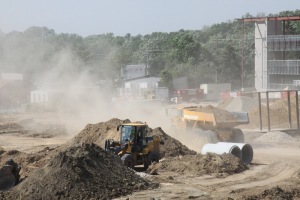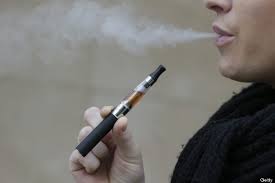The escalating drought crisis in California is causing concern besides the obvious lack of water.  The parched conditions may prompt other environmental changes that lead to discomfort for allergy sufferers.
The parched conditions may prompt other environmental changes that lead to discomfort for allergy sufferers.
First, the warmer temperatures associated with the drought has prompted some pollen-producing plans to bloom early, dispensing their airborne allergens that trigger itchy eyes and runny noses.
And while some other plant-culprits may be withering due to the lack of rain, the potential for mold growth increases in the warm temperatures. Mold spores usually hidden on the ground dry out and, with a gust of wind, easily become airborne along with dust, dirt and other pollutants.
Inhaling any of these irritants can cause even the seemingly allergy-free to experience some sinus discomfort.
In arid areas with low humidity, the dry air can further dry out nasal passages which are actually designed to help protect the body from pollutants and germs. However, the nasal passages need some moisture in order to stay healthy and do their thing.
Medical practitioners recommend that you take a shower after coming indoors and wash your clothes. Leave windows closed and don’t hang wash out to dry.
Using a moisturizing nasal spray throughout the day can help soothe parched nasal passages. Dr. Neuzil’s Irrigator nasal cleansing spray includes natural essential oils that have moisturizing properties. Spraying it into your nose a few times a day can help avoid nasal passages from getting dried out and thus avoid discomfort.

